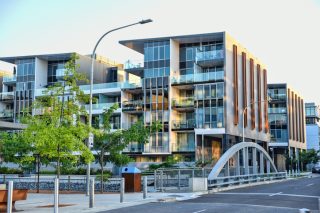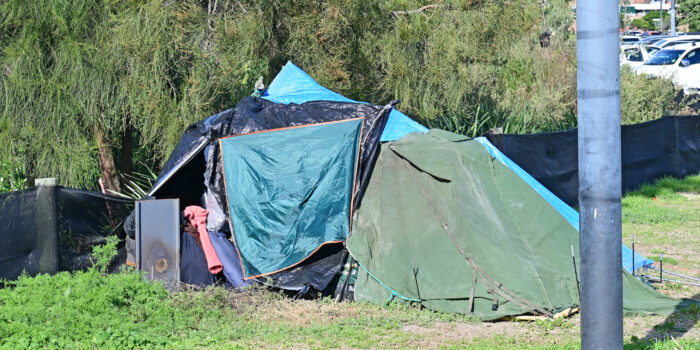A former solicitor has sued the CBA for improperly rejecting a substantially higher offer from the ultimate buyer of a Norman Park “trophy” home auctioned in 2012.
Builder Shaun Dobson and Li Jian Shen were the directors of APH Pty Ltd which acquired the very steep but prestigious site comprising three blocks, in February 2009.

The other two blocks remained vacant. One of those, no 53, was sold by agent Mel Vaisey for $850k in July 2011, about two thirds of its original buy price.
Later that year, Place’s Damian Hackett pitched a $2.5 million offer for the incomplete no 55 that the owners – “hoping for a price in the mid-3ms” – rejected.
In early 2012, Can Bank appointed LJ Hooker Kangaroo Point to take both remaining blocks to their second auction.
Hackett approached Hooker’s Wendy Bell to re-pitch for his client, as did Vaisey but Bell declined to entertain the conjunction given the commission rate the bank had allowed.
Both agents made their own representations to CBA to notify they were holding an offer, but to no avail.
When Place’s client – Dr Mark Daoud and his wife Susan – made contact with Bell, they also intimated they would buy before the mortgagee auction.
Hooker’s Bell discouraged that course, given her concerns of the unknown traps in the sale of a partly completed home and the proximity of the March sale date.
The property was ultimately knocked down to Dr Daoud for just $2.2 million, $300k below what he had been prepared to pay all along.
No 51 sold in May 2012 for $655k – half its 2009 buy price.
Commonwealth sued the company, Dobson and Shen for its remaining losses of $283k.
The third director of APH was former solicitor Phillip Leach who held Shen’s power of attorney and for reasons that are unexplained in the judgement, had also guaranteed the company’s debt to the bank.
With Dobson left penniless from the failed project well before the recovery action began and Shen decamped to China, the bank went after Leach obtaining default judgement in 2012.
In an ambitious plan to avoid bankruptcy, Leach secured an assignment from Shen of his claims as against the bank for having sold both properties short.
Regrettably, Leach was unable to prove Shen’s signature on the assignment document leading to the conclusion this week, from Supreme Court Justice Jean Dalton that the purported assignment of Shen’s “chose in action” was ineffective.
His case against the bank was dismissed and to add insult to injury, he was ordered to pay its legal costs of the 3 day trial.
But had Can Bank undersold the distressed properties?
Even though she had thrown out Leach’s case, Justice Dalton examined the consequences of the Hackett and Vaisey attempts to introduce a sale at a far higher price.
But the Place offer had been conditional on Dr Daoud being satisfied that building work to date carried the requisite approvals.
In the absence of evidence at trial that the doctor had been so satisfied, the court was not convinced that even had Bell even invited a pre-sale unconditional offer from Daoud, it would have been forthcoming at any higher price.
In any event, Her Honour preferred the “very impressive” evidence of valuer Hugh Bristow who valued the site at auction date at just $2 million.
Thus the bank has successfully defended the charge concerning its duty to take reasonable care to ensure that the sale was at market price.
Leach v Commonwealth Bank of Australia [2014] QSC 295 Dalton J 08/12/2014





